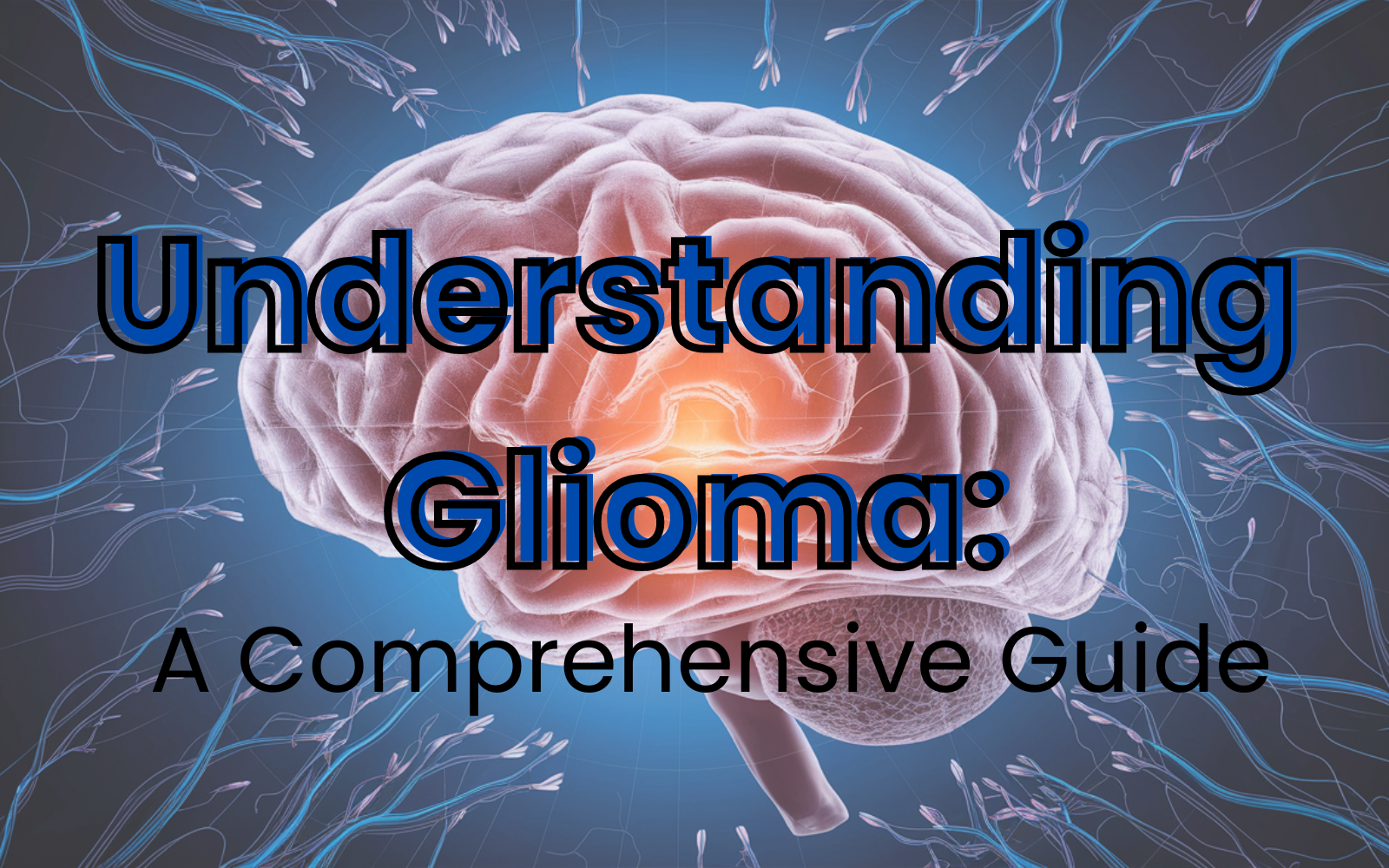Understanding Glioma: A Comprehensive Guide

What is Glioma?
Glioma is a type of growth that originates in the brain or spinal cord. The cells in glioma resemble healthy glial cells, which support nerve cells and assist in their function. As glioma grows, it forms a mass known as a tumor, which can press on brain or spinal cord tissues, leading to various symptoms. These symptoms largely depend on the specific area of the brain or spinal cord that is affected.
Types of Glioma
Gliomas come in many types, with some growing slowly and being non-cancerous, while others are malignant, meaning they are cancerous. Malignant gliomas tend to grow quickly and can invade healthy brain tissue. While some gliomas are more common in adults, others predominantly affect children. Understanding the type of glioma is crucial for determining the severity of the condition and planning the appropriate treatment.
Glioma Symptoms and Diagnosis
Symptoms of glioma vary depending on the tumor's location in the brain or spinal cord. Common symptoms include headaches, seizures, and neurological deficits such as weakness or vision problems. If you experience such symptoms, consulting the best neurosurgeon doctor in South Delhi can provide a thorough diagnosis and treatment plan.
Diagnosis typically involves imaging tests like MRI or CT scans, followed by a biopsy to confirm the type of glioma. An accurate diagnosis is essential for devising an effective treatment strategy.
Glioma Treatment Options
The treatment options for glioma depend on the type, size, and location of the tumor. Common treatments include:
- Surgery: The primary treatment for most gliomas, surgery aims to remove as much of the tumor as possible. The expertise of the best neurosurgeon doctor in South Delhi can be pivotal in achieving successful outcomes.
- Radiation Therapy: Often used in conjunction with surgery, radiation therapy targets remaining tumor cells.
- Chemotherapy: This treatment uses drugs to kill cancer cells or slow their growth.
- Other Treatments: Experimental treatments, such as targeted therapy or immunotherapy, may also be considered based on individual cases.
Choosing the right treatment plan requires the expertise of a seasoned medical professional, like the best neurosurgeon doctor in South Delhi, who can guide you through the process.
Frequently Asked Questions About Glioma
1. What is the survival rate for glioma?
The survival rate for glioma varies depending on the type and grade of the tumor. Low-grade gliomas generally have a better prognosis than high-grade gliomas. Consulting the best neurosurgeon doctor in South Delhi can provide a clearer understanding of individual prognosis.
2. Can glioma be completely removed?
Complete removal of glioma depends on the tumor's location and whether it has invaded surrounding tissues. While surgery aims to remove as much of the tumor as possible, additional treatments may be necessary.
3. What are the early signs of glioma?
Early signs of glioma can include persistent headaches, seizures, and neurological symptoms like weakness or speech difficulties. If you experience these symptoms, seeking a consultation with the best neurosurgeon doctor in South Delhi is recommended.
4. How is glioma diagnosed?
Glioma is diagnosed through imaging tests such as MRI or CT scans, followed by a biopsy. Accurate diagnosis is crucial for determining the appropriate treatment.
5. What factors affect glioma prognosis?
Factors affecting glioma prognosis include the tumor's type, grade, size, and location, as well as the patient's age and overall health. A consultation with the best neurosurgeon doctor in South Delhi can help assess these factors and develop a personalized treatment plan.
Conclusion
Glioma is a complex condition that requires careful diagnosis and treatment. Consulting the best neurosurgeon doctor in South Delhi ensures access to expert care and the latest treatment options. By understanding the type of glioma and the available treatments, patients can make informed decisions about their healthcare journey.
If you have any questions or need further information, feel free to contact our clinic. We're here to help you navigate through your diagnosis and treatment options.
